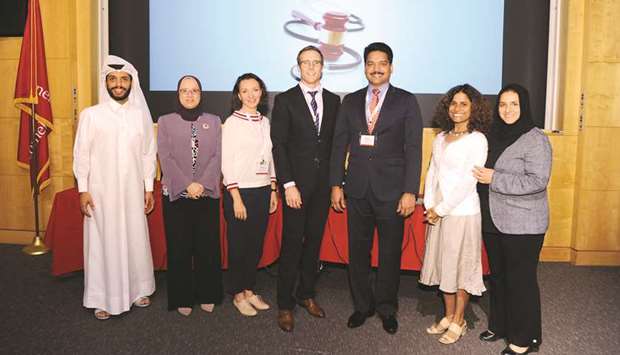The regulation of complementary and alternative medicine (CAM) in Qatar was discussed at the latest instalment of Weill Cornell Medicine - Qatar’s (WCM-Q) Law and Medicine series.
The symposium brought together legal and healthcare professionals from Qatar and internationally to discuss the current laws regulating the practice, practitioners and the products of CAM in Qatar, integrating CAM into conventional healthcare systems, and the opportunities and challenges presented by CAM, among other related topics.
The symposium featured a series of presentations and a panel discussion. WCM-Q’s Dr Ravinder Mamtani, professor of Integrative Medicine, gave an overview of common CAM therapies and discussed evidence-based approaches to integrating complimentary medicine within conventional healthcare delivery.
In addition, Dr Jayarajan Kodikannath, academy director of the Kerala Ayurveda Academy in India and San Francisco, spoke about the practice of Ayurveda and the regulatory and licensing efforts underway to its integration in conventional healthcare
systems in the US and India.
Dr Samar Aboulsoud, acting chief executive officer, Qatar Council for Healthcare Practitioners, explained the regulatory framework underway in Qatar for complementary medicine practitioners and products. Dr Sunanda Holmes, general counsel and chief compliance officer, The American University in Cairo, discussed the framework of CAM regulations set out by the World Health Organisation and the European Union, and potential challenges in regulating CAM through licensing CAM practitioners and products.
Dr Holmes, course director of the Law and Medicine series, said: “Just as is the case with conventional healthcare services, it is vitally important that complementary medicine services and products are well-regulated through education, training programmes and collaborative efforts among all healthcare practitioners from both the conventional and CAM communities.”
A number of practitioners of complementary medicine also presented their own perspectives of their practice and the licensure efforts underway of their professions.

Participants of the symposium.
